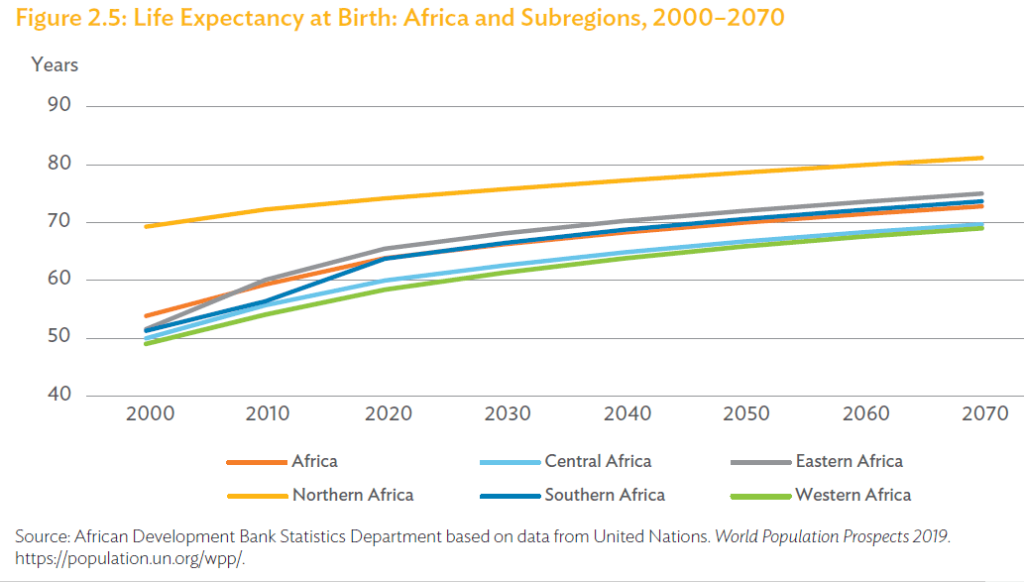#ChartOfTheWeek: East Africa Scores High at Life Expectancy

A conglomerate of five banks has released the Creating Livable Cities: Regional Perspective report that digs deep into the issues facing cities across the globe.
Here in Africa, the surge of population in the urban areas has brought in bigger problems and in most regions cutting the life expectancy numbers. East Africa recorded the highest number of life expectancy only second to Northern African countries.

Below is an excerpt of what is affecting the cities across Africa and in turn cutting down the life expectancy.
Access to Health
Africa has made considerable headway in improving the health outcomes of its population, and as a result, life expectancy at birth has steadily increased from 50 years in 2000 to 64 years in 2019 and is projected to reach 70 years by 2050. However, there remains an evident need to establish robust health care systems and improve the accessibility and quality of health care services.
Poor Air Quality
Air pollution is estimated to claim over 712,000 lives in Africa every year, and is believed to cause more deaths than poor hygiene and malnutrition (Roy 2016). The number of deaths caused by air pollution has increased by over 36% in the last 3 decades. Large metropolitan areas rank among those with the poorest air quality in Africa.
Poor air quality is an issue both for indoor pollution, such as cooking indoors and electricity generators, and outdoor pollution, such burning rubbish and vehicle traffic. With reference to urban mobility, many African cities, such as Dar es Salaam, Casablanca, Tunis, Johannesburg, and Port Louis have adopted efficient public transport systems to help reduce per capita pollution substantially.
Evolving Institutional and Organizational Arrangements
African cities lack the capacity to respond to the current unplanned urban growth (World Bank 2015). They suffer from regulatory bottlenecks and low skills capacity, which have created an unsustainable growth model and resulted in urban sprawl of fragmented and informal settlements.
Institutional arrangements typically disadvantage local government. The effectiveness of African cities depends on the extent to which powers and functions are devolved to them as a service provider and authority. The municipality must:
(i) build a relationship with its citizens and businesses,
(ii) be allowed to receive tariff revenue from services, and
(iii) receive transfers from central government funding and technical assistance associated with the provision of infrastructure.
In reality, however, municipalities are quite marginalized as service providers since a large proportion of services are provided by state-owned entities (SOEs).
Creating Livable Cities: Regional Perspective is a report by African Development Bank, Asian Development Bank, European Bank for Reconstruction and Development, Inter-American Development Bank.